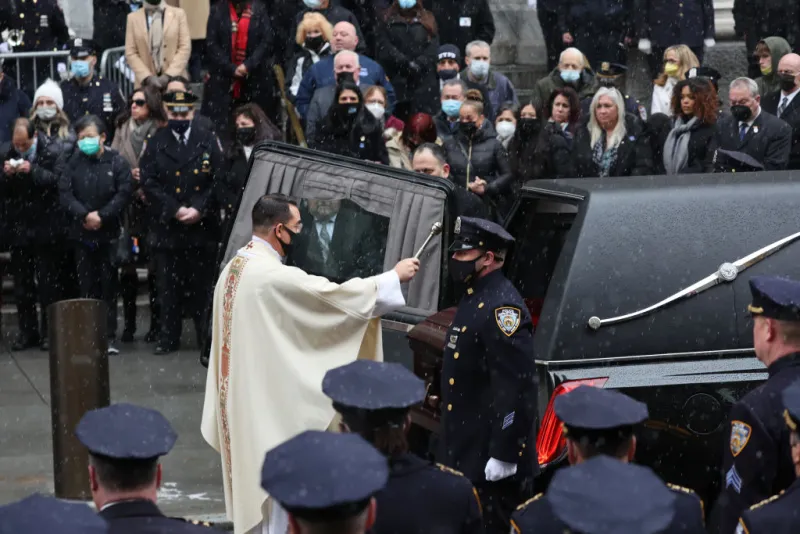
CNA Staff, Oct 6, 2024 / 06:00 am (CNA).
The U.S. bishops announced the second annual novena for mental health as part of a national campaign to promote mental health.
Launched in 2023, the National Catholic Mental Health Campaign aimed to address mental illness around the message that “everyone who needs help should receive help.”
Beginning on World Mental Health Day, Oct. 10, the United States Conference of Catholic Bishops (USCCB) “will begin nine days of focused prayer, teaching, and actionable steps to engage more intentionally on mental health issues,” according to the USCCB Sept. 23 press release. The novena will conclude on Oct. 18, the feast of St. Luke the Evangelist, the patron saint of health care.
The novena will be a tradition for future years to come, said Paul Jarzembowski, the USCCB associate director for the laity for the Secretariat of Laity, Marriage, Family Life, and Youth.
Jarzembowski told CNA that the Church is seeking “to follow the example of Jesus in responding to the needs of the people of God in real time.”
“Today mental health is impacting the lives of so many people, which was amplified and raised to our consciousness by the global pandemic,” he explained. “The U.S. bishops also took note of the growing epidemic of loneliness across the country, in particular among young people, the elderly, and marginalized populations.”
“People are hurting all around us at this very moment, even if we cannot visibly see it,” Jarzembowski said. “Through this nationwide campaign, the U.S. bishops are asking everyone to join them to respond with greater awareness and action as the mental health crisis unfolds before us every day.”
Each day of the novena has a different theme and focuses on a different saint. For instance, Day 1 of the novena begins with St. Dymphna, the patron saint of those suffering from mental illness and of mental health professionals, and focuses on praying for removing stigmas around mental health.
The goal of the novena is to build up “a lasting way for all Catholics to prayerfully remember those who are most impacted by this crisis and to answer the call of Jesus to respond to those who struggle with tender care and pastoral action,” Jarzembowski noted.
The hope is that the campaign and novena “will be integrated into our homes, our churches, and our work within society,” according to Jarzembowski.
When asked what steps Catholics can take to better support people who struggle with mental health, Jarzembowski suggested becoming “more aware of potential mental health issues” and recognizing “that they can be hidden in plain sight.”
“Developing habits of being more compassionate and patient with one another, especially online, can go a long way to creating a culture of spiritual and mental wellness,” he continued. “Be mindful of the signs of depression, suicidal ideation, loneliness, and anxiety, and accompany those people who struggle to seek out the help and support they may need.”
Each day of the novena includes actions that Catholics can take to help address the mental health crisis.
“In our Catholic parishes and dioceses, we can advocate for more mental health ministry,” Jarzembowski added. “From developing mental health support groups to researching health care options in our local community to infusing a spirit of mental wellness into our existing pastoral ministries, especially for young people, families, and the elderly, there are many things Catholics can do to create a culture of responsiveness.”
Resources for the mental health campaign, including the novena, can be found here.
If you value the news and views Catholic World Report provides, please consider donating to support our efforts. Your contribution will help us continue to make CWR available to all readers worldwide for free, without a subscription. Thank you for your generosity!
Click here for more information on donating to CWR. Click here to sign up for our newsletter.





Not a psychologist/psychiatrist by profession aside from rudimentary education, my long experience as a priest hearing confessions, counseling, contact with the dysfunctional mentally ill in psych wards, other institutions [many of us suffer emotionally/psychologically but are functional contributors to society] I can make the assertion with confidence that the loss of two major sociological institutions, religion and family due to the unique historical disintegration of both underlies the outstanding number of mentally ill and suicides [Paul Jarzembowski, USCCB assoc dir laity, family etc does well to emphasize prayer intervention].
Added to this outstanding mental health issue is the reevaluation of the traditional definition of family both within society in general and in the Church Synod on Synodality’s obfuscations.